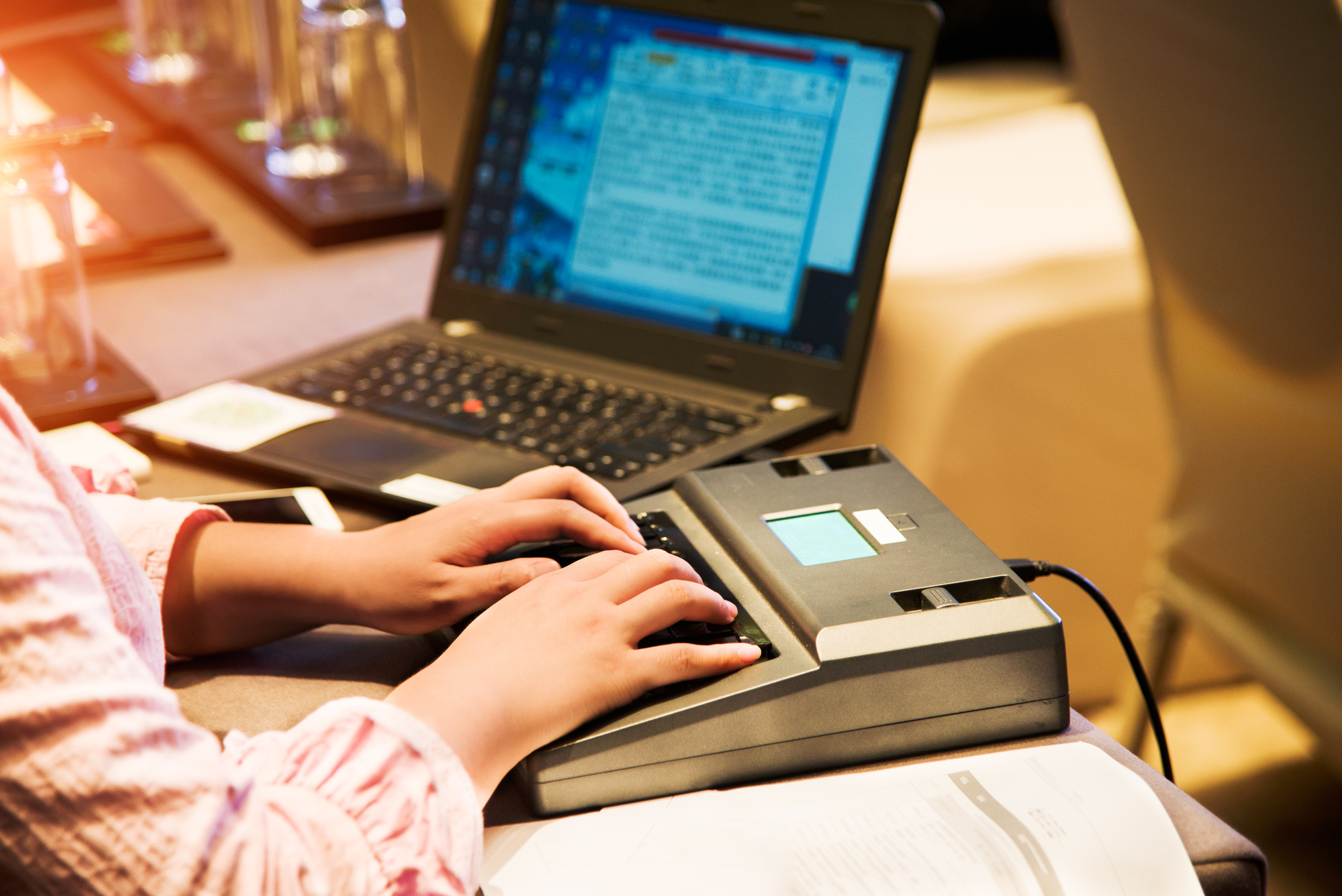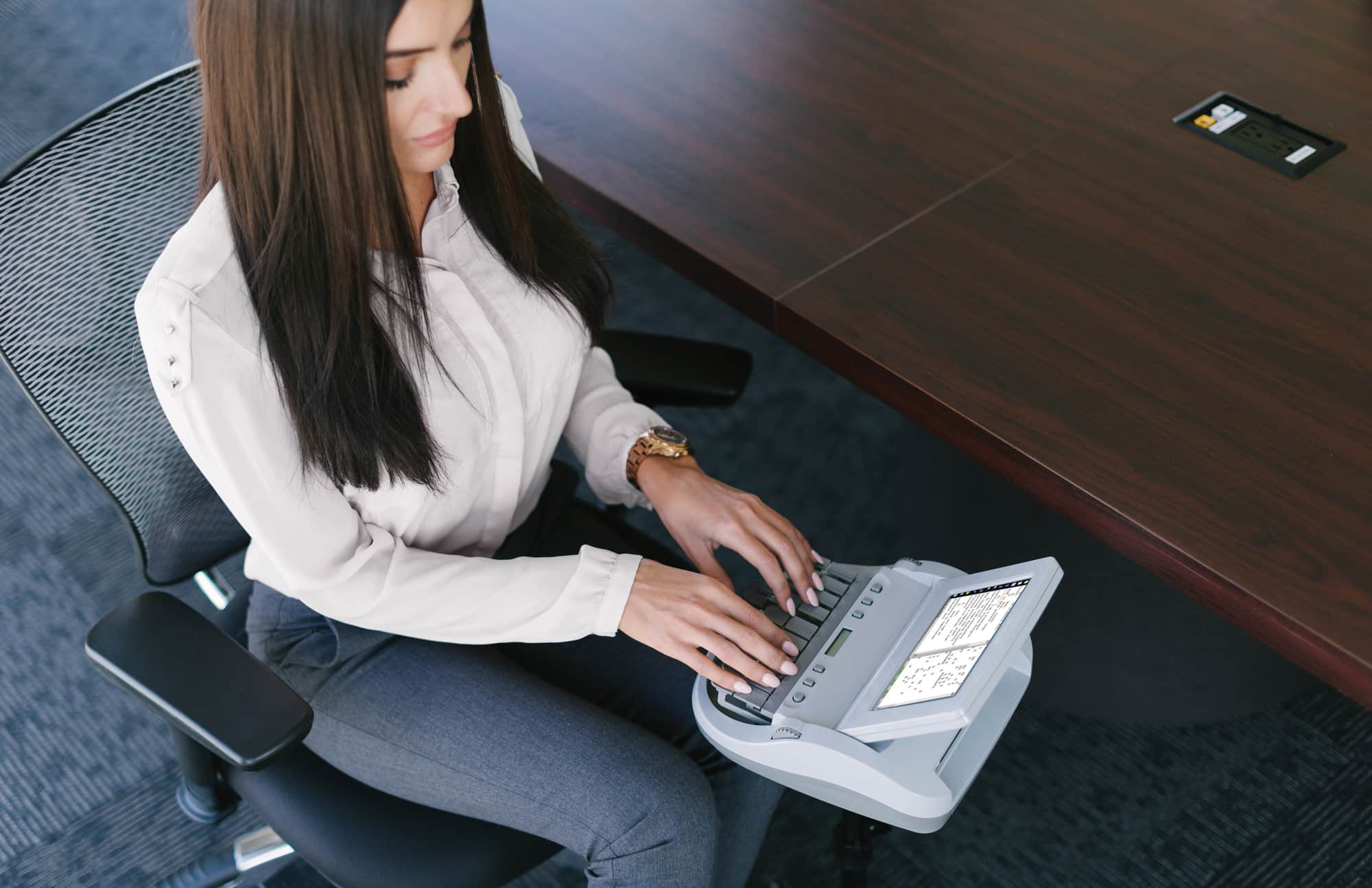Understanding How court reporting Affects Appeals and Legal Reviews
Understanding How court reporting Affects Appeals and Legal Reviews
Blog Article
Understanding the Necessary Function of Court Coverage in Legal Procedures
Court reporting is typically overlooked, yet it's vital in lawful proceedings. Let's explore the basic features of court reporting and its significance in the lawful landscape.
The History of Court Reporting
Court coverage has an abundant background that goes back to old worlds, where scribes made use of numerous approaches to capture spoken words. The earliest kinds of shorthand emerged in Greece around 400 BC, enabling theorists and political leaders to tape-record speeches promptly. As you move through history, you'll discover that the Romans embraced similar techniques, refining them to record lawful procedures. By the 16th century, contemporary shorthand systems began to materialize, enabling stenotype reporter to create precise transcripts effectively.
In the 19th century, the innovation of the typewriter transformed the occupation, making it simpler to create legible documents. The intro of steno devices in the 20th century further advanced court reporting, allowing real-time transcription throughout trials. Today, stenotype reporter play a considerable role in lawful procedures, making sure that every word spoken in the court is properly recorded. Recognizing this history highlights the significance of court coverage in keeping a reasonable lawful system.
The Skills Required for Court Reporters
As a court press reporter, you require strong keying abilities to stay up to date with the fast-paced dialogue of legal process. Your capacity to listen attentively is equally as necessary, making sure every word is captured properly. Mastering these skills is crucial to supplying accurate and reputable records.
Proficient Keying Abilities

Solid Listening Skills
Solid listening abilities are important for court press reporters, as they should properly capture spoken words in actual time. You require to focus intently on the dialogue, getting subtleties, tone, and context to ensure every information is videotaped correctly. This skill aids you differentiate between audio speakers, recognize lawful jargon, and adhere to complex conversations. It's not nearly hearing words; it has to do with comprehending and analyzing them promptly. You'll frequently deal with different accents and speech patterns, so adaptability is necessary. Exercising energetic paying attention methods can enhance your abilities; for example, summarizing what you've heard after conversations can reinforce your skills. Eventually, strong listening skills make you a crucial property in lawful procedures, making sure clearness and accuracy in the court document.
The Modern Technology Behind Court Reporting
In the domain name of legal procedures, technology plays an essential role in boosting the accuracy and performance of court reporting. You're likely familiar with the typical stenotype device, but contemporary court press reporters now make use of innovative software that integrates with these devices, allowing real-time transcription. This indicates you can have instantaneous access to the transcript as the procedures unfold.
Digital audio recording is one more technical advancement that's acquiring traction. It catches every spoken word, ensuring absolutely nothing is missed out on. Some press reporters use voice acknowledgment software, which can assist enhance the transcription procedure, though it still calls for human oversight for accuracy.
Additionally, cloud-based storage space allows simple accessibility and sharing of records, improving collaboration amongst lawful groups. By leveraging these technologies, court reporters can provide high-grade, prompt documents that are essential for the legal process. Embracing this tech not just boosts your understanding yet also assures dependability in legal documentation.
The Court Reporting Refine

As lawful proceedings unravel, the court reporting process becomes necessary in recording every information accurately. You'll locate that a stenotype reporter plays an essential role by recording spoken words right into written text in real-time. When you enter the courtroom, the press reporter is already prepared, geared up with specialized devices like stenographic makers and audio recording gadgets.
During the process, the reporter pays attention attentively, keying out everything stated, from witness statements to lawyers' debates. You may observe them pausing sometimes to ensure clarity or to you can check here request a repeat if something had not been clear. After the session, the reporter examines the transcript, making necessary edits for readability.
This whole procedure not only ensures a detailed document but likewise useful content prepares you for future referral throughout appeals or situation testimonials. In the hectic setting of a courtroom, the court reporting process is essential for keeping an exact account of events.
The Significance of Accuracy in Transcripts
While a stenotype reporter's key duty is to transcribe spoken words, the accuracy of these records is critical for the integrity of legal proceedings. When you're associated with a case, you depend on accurate paperwork to understand the events and arguments provided. Any type of mistakes in transcription can bring about misconceptions, misinterpretations, or perhaps wrongful judgments.
Exact records assure that every information is caught, providing a reliable document for courts, lawyers, and juries. This level of information is crucial throughout charms or when referencing past testimonies. If a transcript consists of inaccuracies, it can weaken the entire lawful procedure, possibly affecting end results.
In addition, precise transcripts copyright the legal rights of all celebrations involved, advertising fairness and transparency. So, whether you're an attorney planning for trial or a witness reflecting on your testament, you can trust that the stenotype reporter's skill in accuracy plays a substantial function in your case's success.
The Function of Court Reporters in Various Legal Setups
Court reporters play a crucial function in numerous legal setups, from trials to depositions and legal hearings. You'll locate that their work guarantees every spoken word is properly recorded, which is vital for the lawful process. Recognizing how their obligations differ throughout these settings can highlight their effect on the justice system.
Court Reporters in Tests
In any kind of lawful trial, you'll discover that court reporters play an essential duty in recording the proceedings with accuracy and accuracy. Court press reporters must preserve emphasis and rate, usually utilizing specific equipment to maintain up with fast-paced discussion. Ultimately, court reporters aid support the justice system, guaranteeing transparency and accountability throughout trials.
Depositions and Legal Hearings
Beyond trials, court press reporters additionally play an important duty in depositions and lawful hearings. Court reporters give real-time transcription solutions, enabling lawyers to follow along and attend to any kind of issues promptly. In brief, court reporters are vital in keeping the integrity and clarity of the legal document in depositions and hearings.
Future Fads in Court Reporting
As innovation remains to advance, the future my latest blog post of court reporting promises to be shaped by ingenious devices and techniques that enhance precision and effectiveness. You'll likely see raised usage of man-made knowledge and real-time transcription solutions, simplifying the reporting procedure. These developments can aid you access transcripts faster, which can be essential for your lawful strategies.
Additionally, incorporating video clip conferencing and remote coverage will certainly end up being a lot more typical, enabling you to get in touch with court press reporters from anywhere (court reporting). This flexibility can make depositions and hearings more available, saving both time and sources
You'll likewise discover a focus on digital recordkeeping, which simplifies the storage and retrieval of records. With cloud-based remedies, you'll have the capacity to share records firmly and work together with your legal group in real-time.
Often Asked Concerns
What Is the Typical Income of a Stenotype Reporter?
The ordinary income of a stenotype reporter differs by area and experience, yet you can anticipate it to range from around $50,000 to $80,000 each year. Lots of elements influence this revenue, consisting of specialization and need.
Exactly how Do I Become a Qualified Stenotype Reporter?
To come to be a licensed stenotype reporter, you'll need to complete a court reporting program, pass a certification test, and gain useful experience. It's essential to remain updated on industry criteria and continuing education and learning requirements.
What Kinds of Cases Do Court Reporters Cover?
Stenotype reporter cover different cases, consisting of criminal tests, civil suits, depositions, and adjudication hearings. You'll locate them documenting every little thing, guaranteeing exact records for judges, attorneys, and events involved, catching every word talked in lawful settings.
Are Court Reporters Required to Have a Level?
Yes, court reporters normally need a degree or accreditation in court coverage. Lots of programs offer specialized training, ensuring you get the abilities necessary for accurate transcription and lawful documentation in numerous setups.
Can Court Reporters Job Remotely?

Report this page